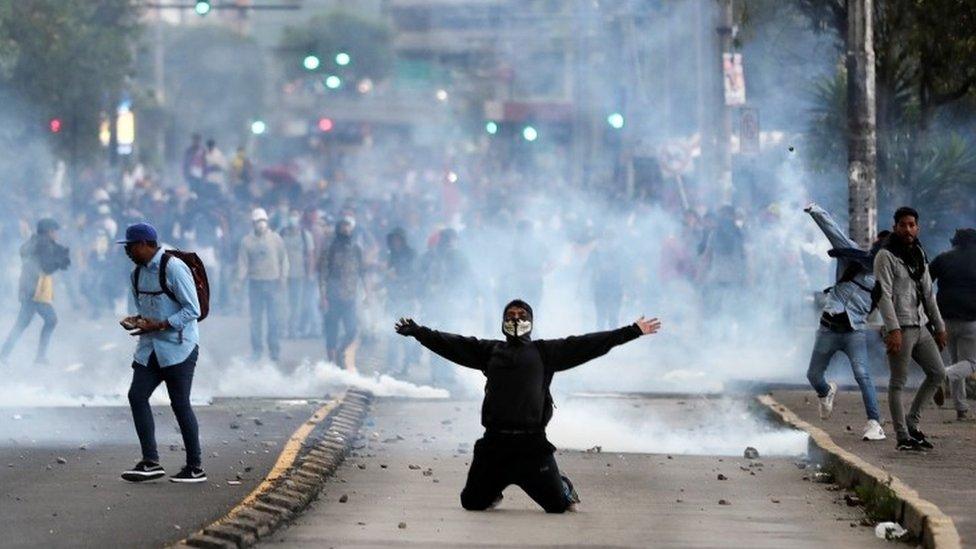Ecuador protesters storm parliament as unrest worsens
- Published
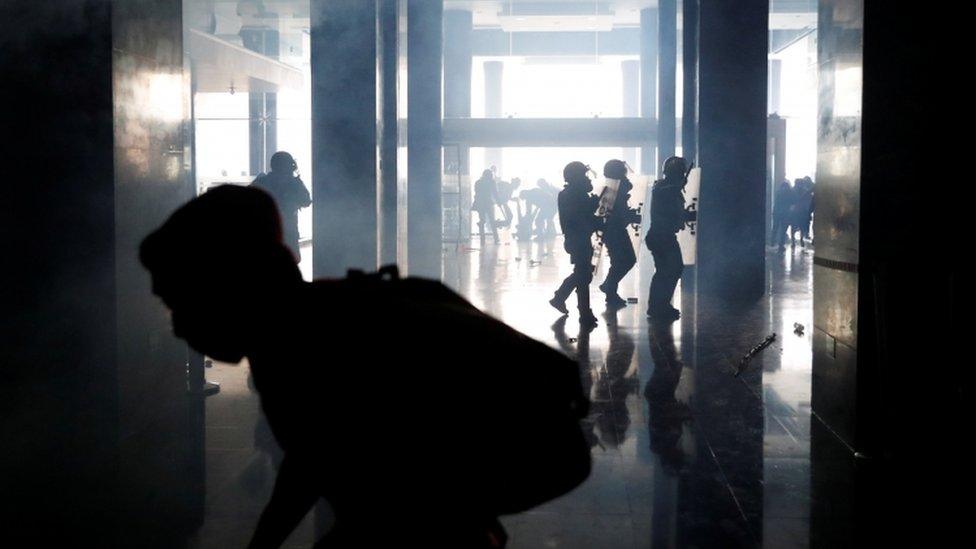
Protesters who burst into the National Assembly building were driven out with tear gas
President Lenín Moreno has imposed a night curfew near government buildings after protesters clashed with security forces inside Ecuador's heavily guarded parliament.
Demonstrators briefly burst through a police cordon before being driven back with tear gas, witnesses said.
Mr Moreno declared a state of emergency last week but has failed to end protests led by indigenous groups.
They are demanding an end to austerity and the return of fuel subsidies.
Petrol prices have soared by more than 100% since last Thursday when the subsidies were removed.
The unrest has forced President Lenín Moreno to move the government out of the capital.
Indigenous-led protests have toppled three presidents in the past few decades.
Amid the worst unrest in years, the embattled government has said it is open to mediation through the United Nations or the Roman Catholic Church.
What's the latest?
Witnesses said protesters, some of whom were carrying wooden shields, broke through a security cordon around the National Assembly building on Tuesday. Once inside they waved flags and chanted slogans before being forced back by security forces using tear gas. No staff were in the building at the time.
Other government buildings in the capital were also attacked and damaged, local media reported.
Across Ecuador, two people have died in the recent disturbances and dozens more have been injured.
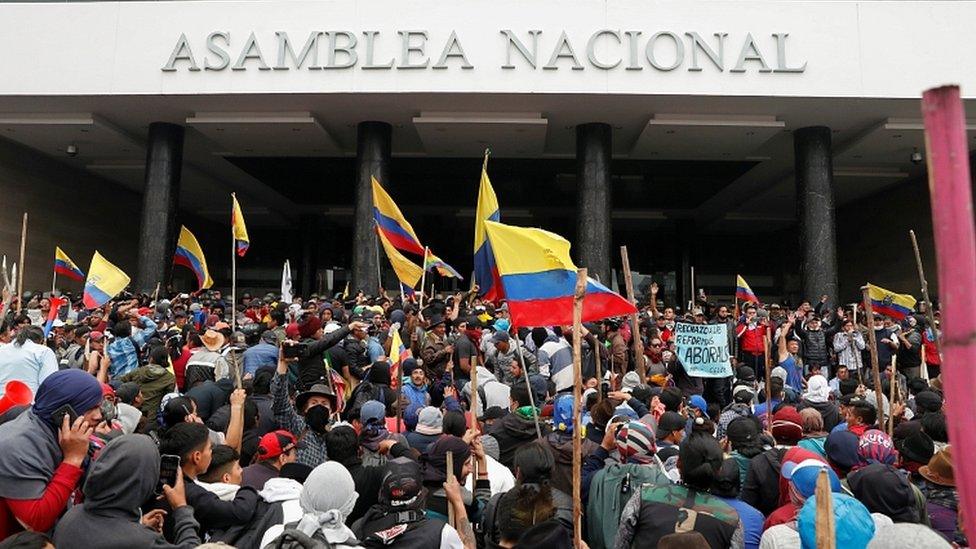
Thousands massed outside the heavily guarded National Assembly building in Quito
Later on Tuesday, Mr Moreno declared a curfew restricting movement near government buildings between 20:00 and 05:00 in a bid to quell the unrest.
The president has refused to resign, reportedly telling broadcaster Teleamazonas "under no circumstance" would he quit.
"I don't see why I should if I'm making the right decisions," he reportedly said.
President Moreno had earlier announced that he had temporarily moved government operations from the capital to the port city of Guayaquil.
What has led to the trouble?
Mr Moreno's announcement last week of an end to subsidies that had been holding down fuel prices triggered a strike by transport unions.
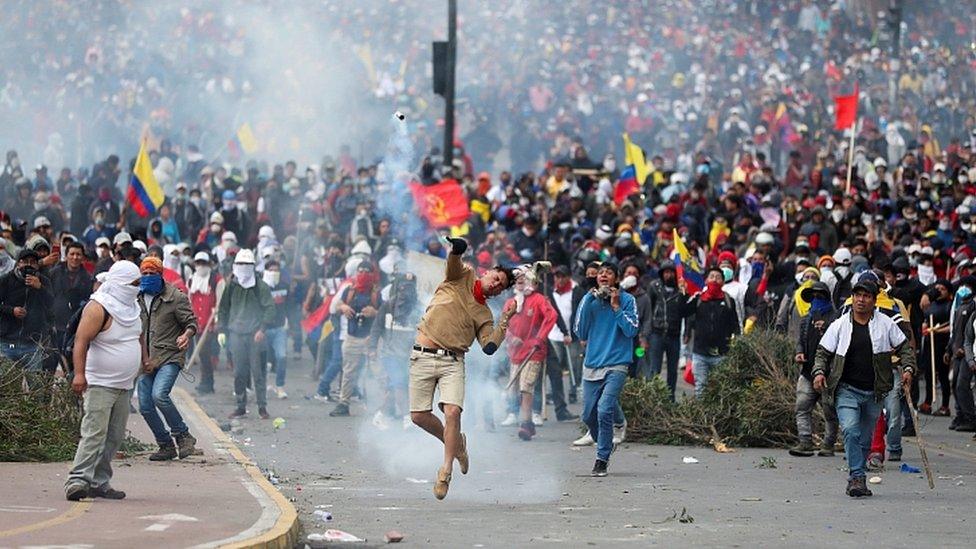
The protests are being led by indigenous groups
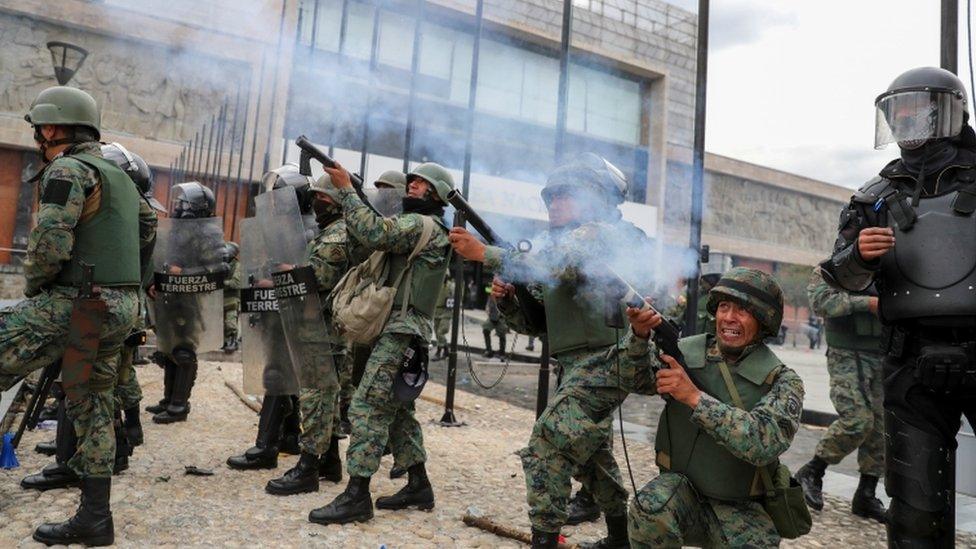
Security forces formed a cordon around parliament
The unions later stopped their action, but protests have continued. Indigenous demonstrators have blocked roads and highways in the country and thousands have travelled to the capital Quito for bigger protests.
Some of the road blockages have affected petrol deliveries, leading to fuel shortages in parts of the country.
Officials said on Tuesday that the number of arrests had risen to 570.
Mr Moreno has declared a two-month national emergency over the unrest.
Why were fuel subsidies scrapped?
Mr Moreno said the subsidies, which cost the government $1.3bn (£1bn) annually, were no longer affordable.
Fires and clashes as Quito descends into chaos
The elimination of the subsidies, introduced in the 1970s, are part of his plan to shore up Ecuador's flagging economy and ease its debt burden.
The government has agreed to cut public spending as part of a loan deal with the International Monetary Fund (IMF).
The agreement, signed in March, allows Ecuador to borrow $4.2bn (£3.4bn).
- Published16 September 2019

- Published17 June 2019
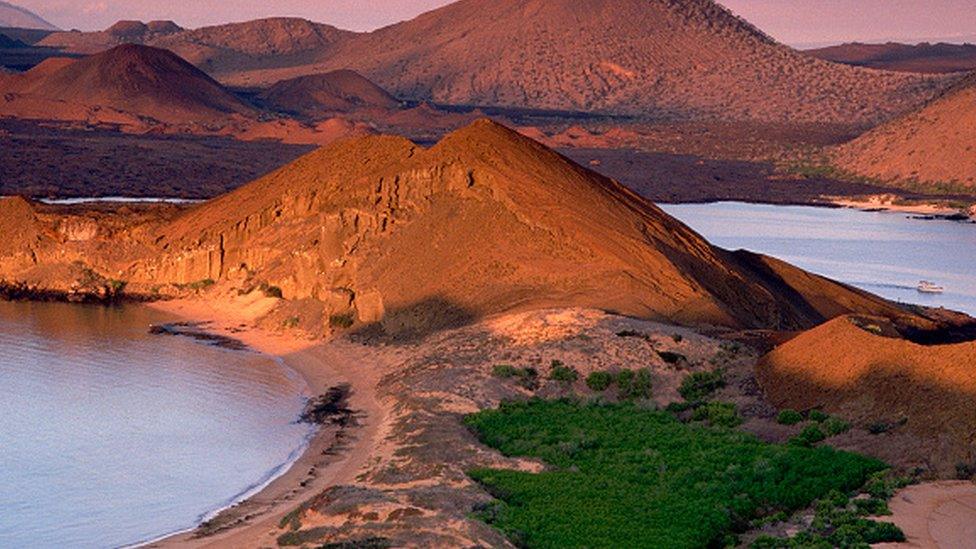
- Published5 October 2019
